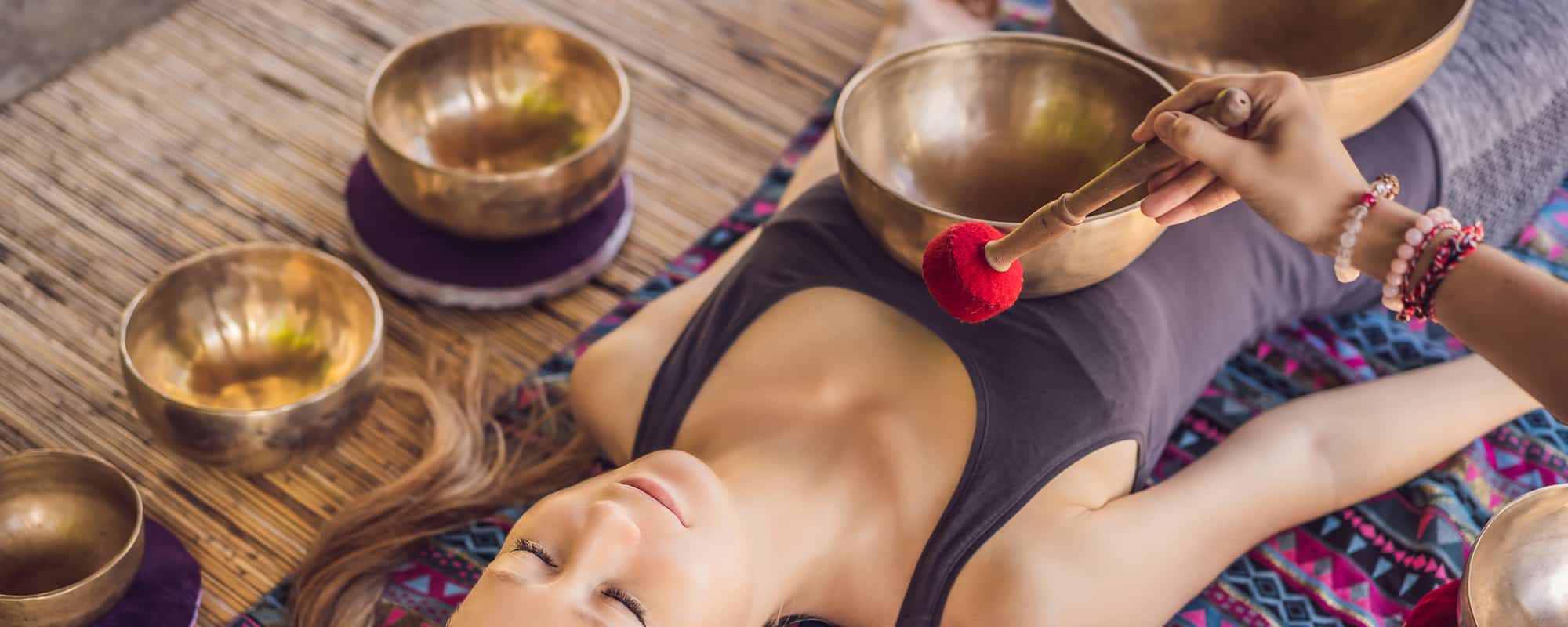Music and sound have been ingrained in all cultures throughout human history. This is why sound therapy can be so powerful. A sound therapist uses their voice, and musical instruments like gongs, tuning forks, and singing bowls, to direct sound waves to your body’s energy field. These vibrations interact with your own subtle vibrations to restore balance on a physical, psychological and energetic level.
I interviewed Allison Davies on the PakMag Podcast to find out more on the Power of Sound and Voice. She is a highly qualified Sound Therapist who holds a Bachelor of Music, Bachelor of Teaching and a Master of Music Therapy.
What effect do thoughts, words, and music have on our bodies?
“There are so many different and complex ways that our thoughts, words, sound and voice impact our body. Using our voice out loud can be a really incredible way of supporting ourselves to feel safe and coming out of survival mode. Survival mode underpins anxiety, fear, and a lot of what we struggle with in our modern Western world. When we sing, we are also breathing. When we sing out, we literally cannot breathe in as we’re singing out.
So, by default you are using your voice in a way that is controlled breathing. Controlled breathing relaxes our nervous systems and tells us that we’re safe. Making music, listening to music or even thinking about music leads to this whole brain response where there’s just so many different parts of the brain active, more than any other activity you can do. The power of sound and voice is incredibly important for our brains, bodies, energy and wellbeing.”
How can we harness the power of sound to take care of our brains and wellbeing?
“There is no tool more powerful for healing than the human voice – your body is an instrument.
We are two thirds liquid in terms of our body so when you look at what happens to sound waves and vibrations with water it’s no wonder music and sound impacts our body in such a positive way and improves our brain function and wellbeing”.
Music as therapy may be a foreign concept to some, but from your experience – how life-changing has it been with those you have worked with? Can you explain how it helps people of all ages self-regulate?
“Sound therapy is a healing technique that employs the vibrations of the human voice to go beyond relaxation and foster healing. Some sound therapists use external instruments, such as tuning forks or singing bowls. However, there is no tool more powerful for healing than the human voice.
Music therapy is the use of music to attain and maintain health and wellbeing. Music can be used for physical outcomes but you can also use it to improve sleep quality, it’s such a holistic and non-invasive way of working with someone. Music therapy is a very powerful allied health avenue”.
As a person with autism, how has music helped you?
“Music saved my life. I didn’t realise I was autistic until I was in my 30s. As a child, I used to count in my head constantly in three’s. It was just constantly like “123, 123, 123”. I lived this constant, very highly stimulated and dysregulated life where I couldn’t stop or relax. Music helped stop these feelings, when I would hear music, I wouldn’t be counting.”
What tips do you have for people interested in harnessing the power of sound?
“Even humming is musical and using sound has been proven to be really amazing for your body. Two generations ago our grandparents used to hum and whistle all the time – music can be so simple. Because of the relationship between music and our brain, I think of our brain as a musical organ. We’re all musical beings, and a lot of people have a very difficult relationship with their sense of musicality.
Some may feel like they can’t sing in tune or they’re not good enough. There are all these factors when we’re considering the type of people we call musical, and they’re not really a reflection of musicality. Humans are musical and we just need to step into creating a relationship with our voice and feeling confident to use it out loud. We are musical – it’s inherent to us. My hope is that if people start expressing themselves musically, it will really improve our anxiety levels and mental wellbeing”.
Have you got any ideas of things we can try to increase our use of sound and voice in our lives?
“I want to acknowledge that it can be hard to use your voice. When you are someone who’s always had self-limiting beliefs around your sense of music, your musicality. So, when I sang Every Little Cell and people saw this video, hundreds of people emailed me to say I love this song but I could never sing it to my children because I don’t want them to learn to sing badly.
The shame of this social construct of this idea of someone not being musical runs deep. The shame and suppression of our voices, especially with women being shushed and not allowed to speak, adds all of these layers of trauma connected to our voice which makes it very difficult for some of us to express ourselves musically”.
Here are some simple things you can try
1. Humm
2. Sing out loud
3. Sing in your head
4. Dance
5. Whistle
6. Melodic Mantras sing “I am strong”
7. Repetition
8. Rhymes
9. Read out loud
10. Play an instrument
11. Listen to music
Some of the Benefits of Sound Therapy Include
• Relaxation and lower stress levels • More balanced moods • Lower blood pressure • Lower cholesterol • Improved sleep • Heightened awareness, clarity and balance • Reduced chronic pain • Emotional and social development • Improved cognitive and motor functioning • Improved psychological and psychiatric health • A stronger immune system • Improved creativity





